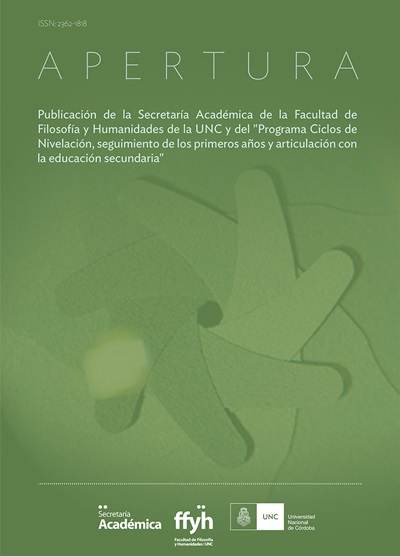Policies of inclusion and the right to education at the secondary level of education
Main Article Content
Abstract
In this article, I will briefly review the characteristics that educational policies have assumed in order to favor educational and social inclusion processes, specifically those oriented towards the secondary level of education.
Thinking about and/or addressing inclusion policies necessarily implies referring to a concept and/or principle that is the right to education. It is worth reflecting, then, on what the notion of right implies. According to Rinesi "it supposes the idea of a fundamental equality among people, we are all equal, therefore we have rights that are universal, or it builds it, we all have such a right and as holders of that right we are equal". But this notion of equal rights, Feldfeber and Gutz (2019) propose without distinction of race, religion or culture, is in opposition to the particular demands of cultural identity that claim a differentiated treatment of certain groups on grounds of vulnerability, backwardness or historical injustice.
Specifically, I believe that the dilemma between equal rights and attention to diversity has crossed the historical configuration of the educational system and, more specifically, the secondary education level.
Downloads
Article Details

This work is licensed under a Creative Commons Attribution-NonCommercial 4.0 International License.
Aquellos autores/as que tengan publicaciones con esta revista, aceptan los términos siguientes:- Los autores/as conservarán sus derechos de autor y garantizarán a la revista el derecho de primera publicación de su obra, el cuál estará simultáneamente sujeto a la Licencia de reconocimiento de Creative Commons que permite la generación de obras derivadas siempre que no se haga con fines comerciales. Tampoco se puede utilizar la obra original con fines comerciales.
- Los autores/as podrán adoptar otros acuerdos de licencia no exclusiva de distribución de la versión de la obra publicada (p. ej.: depositarla en un archivo telemático institucional o publicarla en un volumen monográfico) siempre que se indique la publicación inicial en esta revista.
- Se permite y recomienda a los autores/as difundir su obra a través de Internet (p. ej.: en archivos telemáticos institucionales o en su página web) después del proceso de publicación, lo cual puede producir intercambios interesantes y aumentar las citas de la obra publicada. (Véase El efecto del acceso abierto).

